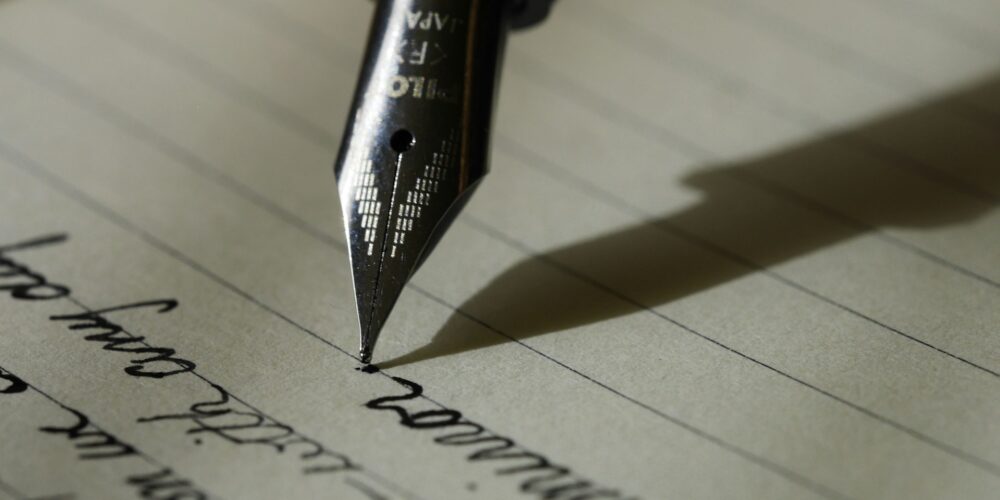Why every nation should value its writers

What would you say about a land of just 5 million people that has produced four Nobel literature laureates and six Booker Prize winners? This year’s Booker longlist had no fewer than four finalists from this country.
I refer to Ireland, a country that routinely punches above its weight in the realm of literature. So we have to ask: is there something in the water? This land has given us Yeats, Joyce, Beckett, and O’Brien in times past, and now throws up young, modern writers with an international following almost routinely. At least one Irish author has appeared on the Booker longlist in 16 of the past 20 years. I notice several Irish authors on my own to-buy and to-be-read lists.
What’s going on here?
Let’s first acknowledge an awkward truth: t’was not always thus. In the past Ireland had a repressive, censorious state, and many progressive writers had to leave to do their best work. Today’s flourishing of literature also has its roots in a catastrophe: the Great Famine of the middle of the 19th century caused a million people to die and a million more to flee. That trauma led to an outburst of writing, at home and in diaspora.
There is also something deeply cultural at play. The Irish are renowned storytellers, full of humorous insight and a colourful turn of phrase. Kate Evans, of the Australian Broadcasting Corporation, tells us that “again and again with Irish authors, it’s the mixture of poetry, brutality, lyricism, humour, and blood that does it.” Modern Ireland is multicultural and diverse, with a cacophony of interesting voices. This is showing up in its writing, which now transcends parochial issues and has broad-based appeal and a global resonance.
And then there’s the state. Ireland’s Arts Council understands the importance of supporting upcoming authors—whose incomes are always precarious—with the use of bursaries, to buy time for writers to develop. The Council also funds literary journals and publishing houses. Culture Ireland and Literature Ireland help their authors to promote their work outside the country. This perhaps allows the industry to move away from the intense profit-line focus that bedevils other countries and is fuelling a race to the bottom of lookalike, written-by-the-numbers populist trash. Literary critic Houman Barekat says Irish writing nurtures “a certain kind of literary fiction: serious, intellectually and aesthetically ambitious, relatively uncommercial.”
Success also begets success; the more well-received books there are, the more young writers will aspire to write their own. Publisher Juliet Mabey told the BBC that the Irish writing scene is very collegial—writers help and support one another, and provide time and mentorship to younger voices.
Why am I telling you all this, this Sunday in Kenya? I won’t be holding my breath that our government will suddenly start supporting literature. Indeed, literature is often perceived as a pursuit of the educated elite, with no need for collective support. It’s a fair point, and right now there are many more pressing priorities facing us.
And yet. Like Ireland, we too have the cultural diversity, the tradition of storytelling, the far-flung diaspora, promising young writers, and the rich well of national anger about our own historical failings. Literature is one of the most important threads in the fabric of the nation. It can even be foundational in building national prosperity. Literature is not just an art form; it can be a vehicle for education, cultural deepening and exchange, and critical thinking. Personally, most of my education came not from teachers and classrooms, but from the books I subsequently read and thought about and discussed in my life.
Literature promotes empathy by helping us understand the lives of others. It broadens perspectives and pulls us out of narrow tribal and geographical cocoons. It build a sense of national identity and culture. It stimulates debate and provides a place where critical thinking can be developed in addressing the vast complexities of the modern world.
Books give us a place to understand others, and to think for ourselves.
We should all invest in reading and writing, for literature can propel us forward in untold ways. Certainly, national development is first about classrooms and clinics, roads and cabling. But it also occurs in conversations and discussions, in deep solitary dives into mind-opening stories, and in the ability to relate compassionately with our fellow humans.
We don’t need to wait for it to happen in the boardrooms of state and publishing house; we can all do more. How? Encourage children to read by buying books for them or enrolling them in libraries from a young age. Support bookshops by purchasing books from them, even if only to give away as gifts. Read better books—those with a moral fibre and creative intent, not just vapid entertainment. Write our own words, in journals and blogs and tweets and posts, and get better at shaping and reshaping them.
Literature needs an ecosystem of readers and writers. It needs stories to be shared and promoted. Supporting great literature enriches our own lives, but also allows us to make a subtle contribution to the greater good.
(Sunday Nation, 25 February 2024)

Buy Sunny Bindra's new book
The X in CX
here »
Popular Posts
- Where are you rushing to—your funeral?June 29, 2025
- The map will appear—once you start walking.July 6, 2025
- How to spot a real thinkerJune 15, 2025
- Built the app, forgot the flowJune 22, 2025















